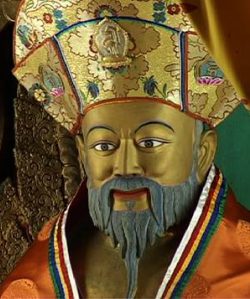HISTORY OF GNH

The concept of Gross National Happiness (GNH) was promulgated by His Majesty Jigme Singye Wangchuck, the Fourth King of Bhutan in the early 1970s. When His Majesty spoke about GNH at the time, he questioned the prevailing measurement system that Gross Domestic Product (GDP) alone could deliver happiness and well-being to society. He was still a teenage monarch, and wise beyond his years. His Majesty firmly believed that happiness is an indicator, and a sign of progressive development for the Bhutanese people. He also believed in the legitimacy of public discussion in defining Bhutan’s development goals.
In addition, Bhutan’s ancient legal code of 1629 stated that, “if the government cannot create happiness for its people, then there is no purpose for government to exist”. The code stressed that Bhutanese laws must promote happiness for all sentient beings – as a Buddhist nation, it is clear that the cultivation of compassion stemmed from this ancient wisdom. That the focus was not just the economic progress of Bhutan, but of a flourishing human society living in harmony with nature. Today there is a lot of research that shows that wealth alone does not contribute to life satisfaction or happiness. GNH measures the quality of its development in a more holistic way and believes that the beneficial development of human society takes place when material and spiritual development occurs side by side. Bhutan has been considered a living example by many for sparking the debate on what is real human development.


Four decades later, Bhutan embraced democracy in 2008, wherein the Constitution of Bhutan, Article 9 further ensured the inclusion and continuity of GNH values by defining duties such as: “The State shall strive to promote those conditions that will enable the pursuit of Gross National Happiness.” Therefore, Bhutan ensures enabling conditions for happiness to be the sole purpose of its development. Over the years, GNH has evolved from a noble aspiration into a more quantifiable tool, partly in response to the unexpected global attention it has garnered.
Today, it is technically defined as a “multidimensional development approach seeking to achieve a harmonious balance between material well-being and the spiritual, emotional and cultural needs of society.” The keywords being harmonious balance - that may be achieved by balancing the needs of the body with those of the mind.
Related information on GNH
